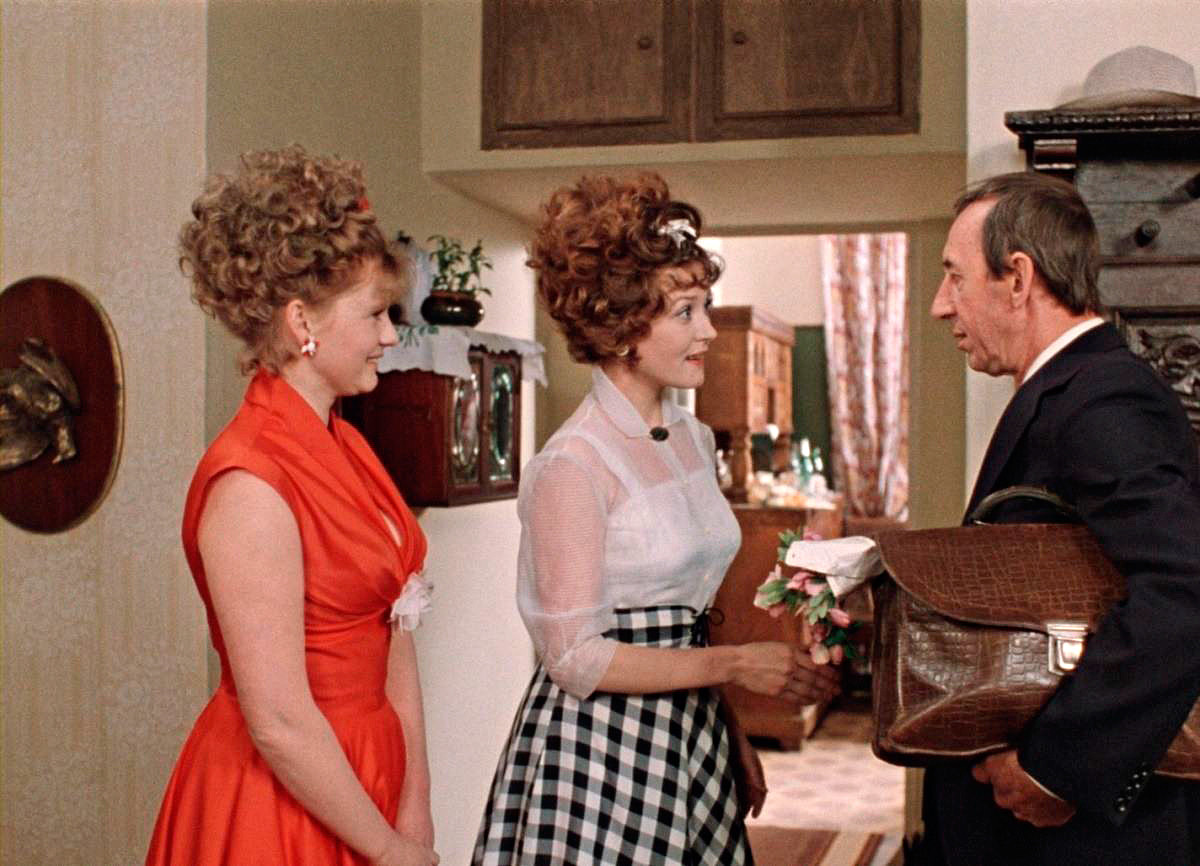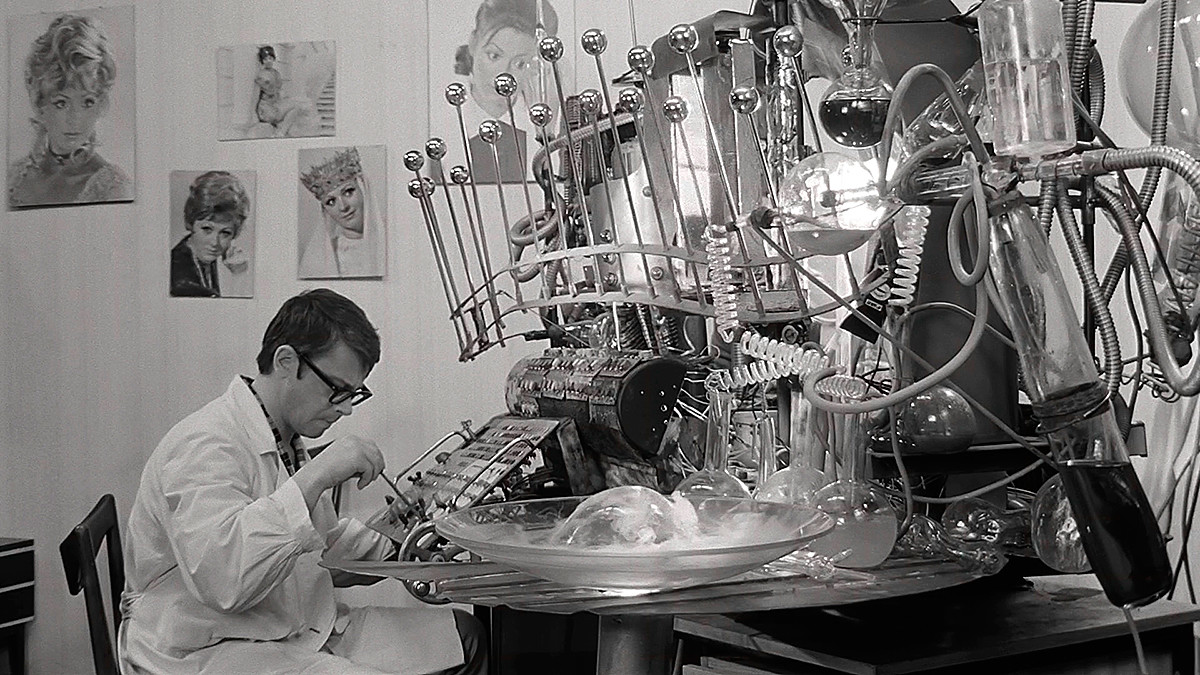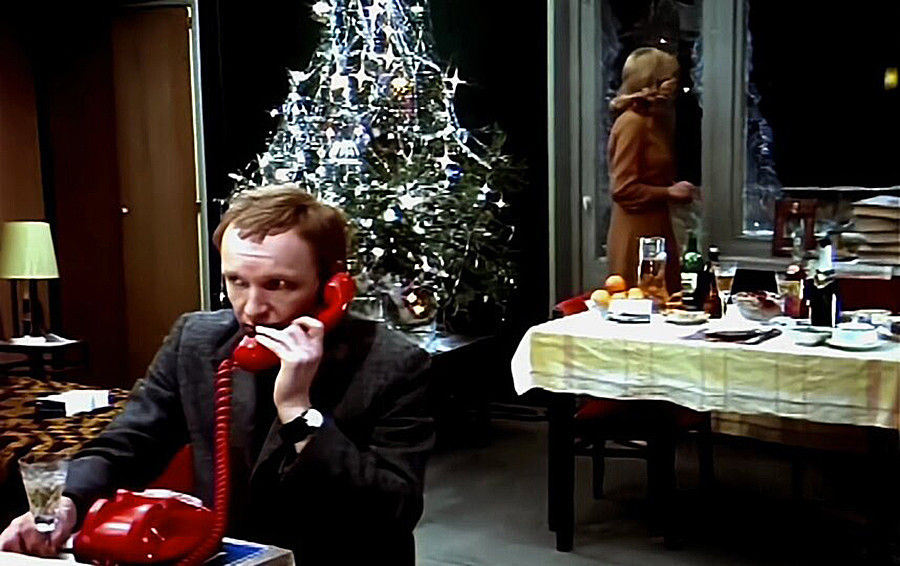
'Ivan Vasilyevich Switches Professions'
Leonid Gaidai/Mosfilm, 1973Here is some guidance on how to not get completely lost trying to express your politeness when speaking Russian.
The easiest and most common phrase for “How are you” is “Как дела”. But as soon as you successfully articulate your “хорошо” (good), “отлично” (great), or even “замечательно” (wonderful), you might not be sure how to add the simplest “And you?” to your response.
The reason why is that the phrase “Как дела” literally means “how [are] things/deals”, without indicating whose deals or things we are talking about. What Russians imply is “Как У ТЕБЯ дела” (how are the things around you/how are the things you have), dropping “у тебя” - the expression that declares possession. Here the word “тебя” is in genitive case, dictated by the preposition “y”.
If you’d like to be even more polite, you may ask “Как дела у сестры/мамы/брата…” (How is your sister/mom/brother doing/how are their things), using the same construction “у + noun or pronoun in genitive case”. Here you can check out more forms for Russian pronouns and nouns in the Genitive case.
Another option is to say the phrase “Как ТВОИ дела” (how are your things/deals) with the plural possessive pronoun “your” - “твои” that Russian speakers also usually drop.
That’s why, to ask the question “And you?”, you would say “А у тебя” or “A твои?’ (informal) and “А у вас?” or “А ваши?” (formal), articulating the words implied in “как дела”. The conjunction word “А” means “and” in this context and remains the most appropriate way to start your response questions.

'Moscow Doesn't Believe in Tears'
Vladimir Menshov/Mosfilm, 1980For all questions where the main subject is used or implied in the nominative case. For instance, in “Где ты работаешь/где вы работаете” (where do you work?), ты (you singular/informal) and вы (you plural/formal) are all pronouns in the nominative case, because they are the main actors of these sentences. The same happens with all other sentences of this type: Где вы живёте? - В Москве, А вы? (Where do you live? - In Moscow, and you?) or Ты любишь Санкт Петербург? - Очень! А ты? (Do you like Saint Petersburg? - Very much! And you?).

'Ivan Vasilyevich Changes Professions'
Leonid Gaidai/Mosfilm, 1973In Russian, you can’t like (нравиться) something directly. So, to say “I like jazz” - “Мне нравится джаз” would be translated as “To me, jazz is pleasing”. As you can see, instead of using the pronoun for “Я” (I), you put it in the dative case, making it “мне”. To ask a question back, use the phrase “А тебе?” (And you), where “тебе” is “ты” (you) in the dative case. For a list of all the pronouns and nouns in the dative case, follow the link.
Congratulating others with any holidays requires an instrumental case for the holiday and an accusative case for the person you’re congratulating. For example, in the phrases “С Новым Годом” (Happy New Year) or “C Днём Рождения'' (Happy Birthday), the names of these holidays are in the instrumental case with the preposition “c” (with). The expression derives from the sentence “Я поздравляю тебя с Новым Годом” (I congratulate you with the New Year), but of course, to save time, Russians drop most of the words. So, when you wish to congratulate somebody back, use the accusative case “И тебя” (and you - informal, singular) or “И вас” (and you - formal/plural). Otherwise, you may use the same pronoun in accusative case with the word “тоже” (too/as well) - “Тебя тоже/Вас тоже”.

'The Irony of Fate'
Eldar Ryazanov/Mosfilm, 1975When you wish something specific back to others, use the dative case of the word “you”. When somebody says to you “Хороших выходных” (Have a good weekend), implying “Я желаю тебе хороших выходных” (I wish you a good weekend), they use the expression “хороших выходных” (good weekend) in genitive case and the word “тебе” (you) in dative case because “you” acts as a recipient here. The same happens to the expression “Удачи!” (Good luck!). So, to wish “удачи” or “хороших выходных'' back to somebody, say “Тебе тоже” (for you too) or “И тебе” (for you as well).
Although all these slight changes may sound too specific, they do become essential when you have a conversation in Russian. The main rule for all particularities is that you should always watch out for the pronoun that your friends use or imply. This will always be key to what you need to say in response - instead of repeating the same question.
Всего доброго! (All the best!)
If using any of Russia Beyond's content, partly or in full, always provide an active hyperlink to the original material.
Subscribe
to our newsletter!
Get the week's best stories straight to your inbox